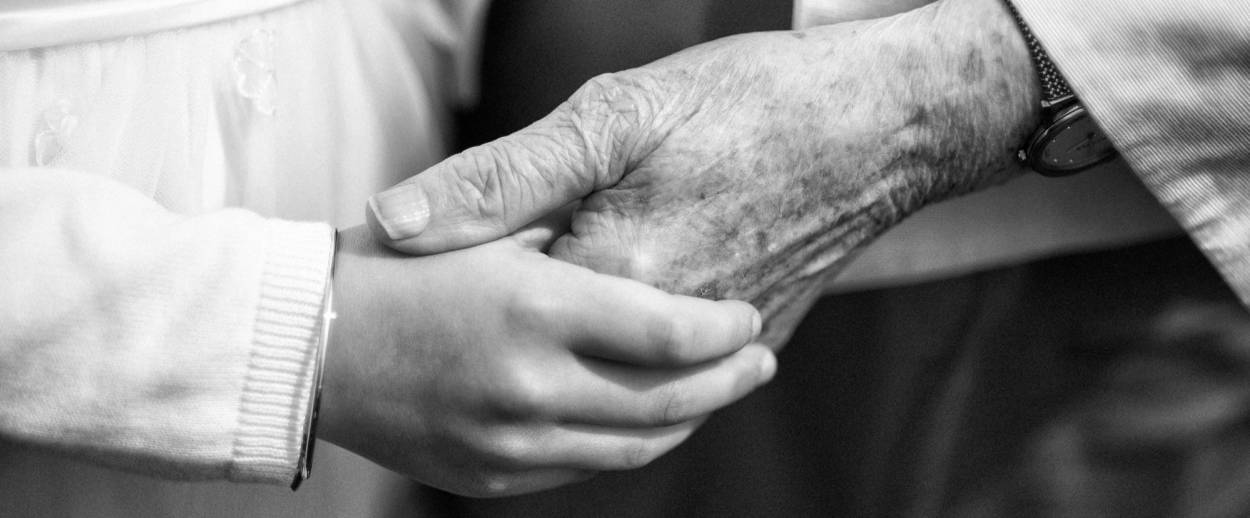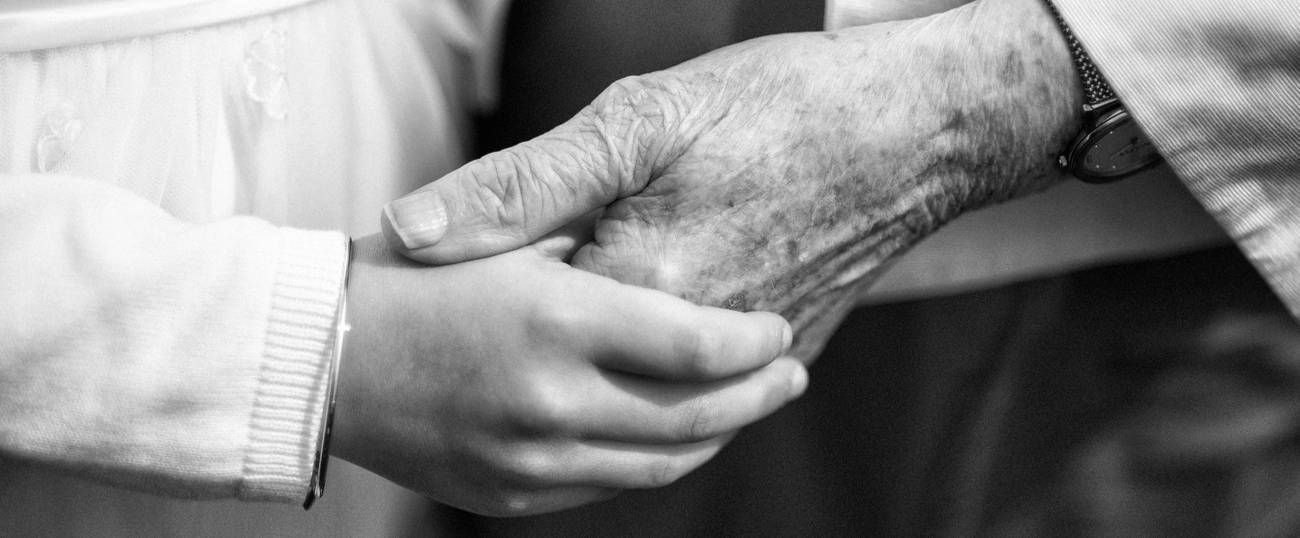My Grandma Norma, who died seven years ago today, was one of my favorite people in the world. I think of her as my third parent. She moved from L.A. to Dallas, where my family was living, a week after I was born. She wanted to watch me grow up, and, weirdly enough, she died a month before my eighteenth birthday. She was such a kind person, and always super glamorous. She worked at Neiman Marcus so she always had the best clothes, and since she got a blow-out every week, she didn’t know how to style her own hair.
Things began to change when I was nine. She started getting lost driving home from work. She frequently forgot where she parked her car, which inspired a satirical book I wrote in second grade entitled “How to Get Lost With My Grandmother.”
My grandmother had Alzheimer’s Disease—a condition that affects more than five million people in the U.S. today, according to the Alzheimer’s Association. For many people living with Alzheimer’s, even in the later stages, taking part in rituals from their past is a source of comfort. My grandmother always enjoyed Jewish practices and life cycle events, but it was hard to accommodate her needs as her dementia worsened. It was difficult to bring her to synagogue because we never knew how people would react to her, plus our temple lacked clearly accessible seating. So when her condition deteriorated, she only came to temple for the bat mitzvah ceremonies for my cousin Laurel, my sister Gabbie, and me. During our services, we did our best to include her—sometimes with humor. (When Gabbie asked “all who are able to please rise” during her service, she quickly noted “that does not mean you Grammy.”) She was still able to take part in the important parts of the ceremony like passing the Torah through the generations.
Looking back, however, I wish our family had had more access to resources in the Jewish community. The good news is that in recent years, several Jewish organizations and individuals have made efforts to initiate programming for people in their communities living with dementia.
In 2012, Barbara Glazer approached Rabbi Andrew Paley of Temple Shalom Dallas about starting a ‘caregiver’s day out’ program for people with memory loss and their caregivers, inspired by her experience helping care for a cousin with Alzheimer’s. Glazer told me she was initially concerned that there might be some resistance to her initiative, but to her delight, Rabbi Paley immediately agreed. The program takes place every other Thursday for five hours. Participants get the opportunity to socialize, make music, and exercise, while their caregivers get some much needed respite. Glazer told me that Mike Jacobs, a Holocaust survivor who was becoming withdrawn and quiet according to his family, instantly lit up during the music portion of their program when he heard a song that he remembered from services.
That same year in New Jersey, author Eliezer Sobel was inspired to begin writing books for people with dementia after he realized that his mother Manya, who was in the late stages of Alzheimer’s, could still read and be entertained by large text in newspapers and magazines, despite being almost completely nonverbal. He tried to find books for her to enjoy, to no avail. There were over 20,000 titles for caregivers, but almost none that were appropriate for the patients themselves. That changed with the publication Sobel’s first picture book for people with dementia, Blue Sky, White Clouds: A Book for Memory-Challenged Adults, which is dedicated to Manya. In 2016 he published his follow-up book L’Chaim: Pictures to Evoke Memories of a Jewish Life, a first-of-its-kind publication for Jewish readers. Each page of L’Chaim tells its own story, and features an image that takes up almost the whole page with a one-sentence description below. The book is dedicated to Sobel’s late father Max, “in deep gratitude for his tireless care of my mother for nearly 13 years.”
Jewish Museum Milwaukee hosts a monthly cultural program called Spark! for people experiencing memory loss. Each 90-minute session is led by a specially trained museum educator, with a focus on a specific topic. Spark! events—which are held at a range of institutions across Wisconsin and Minnesota—are designed to create lively discussions and give participants the opportunity to socialize, take part in art-making, encounter museum artifacts, and experience other multi-sensory activities. Though the overarching Spark! program isn’t Jewish in nature, the sessions at the Jewish Museum in Milwaukee have a distinctly Jewish flavor—2017 sessions featured the work of Jewish artists Barbara Kohl Spiro and Adolf Rosenblatt.
Grandma Norma died before any of these programs or books existed. Some of her fondest memories about her childhood came from her days at Jewish sleep away camp, and I wish we had been better equipped to make Judaism a bigger part of the final years of her life. I’m disappointed that these resources weren’t available to her then, but the fact that they exist now—and that others will benefit from them—is heartwarming. On her yahrzeit, I’m reminded of how important it is to think creatively about how we as Jews can incorporate religion into the lives of people with Alzheimer’s, and in turn more readily include people with Alzheimer’s in our communities.

